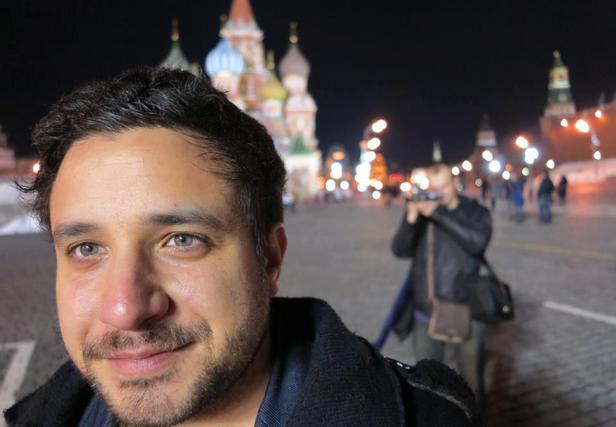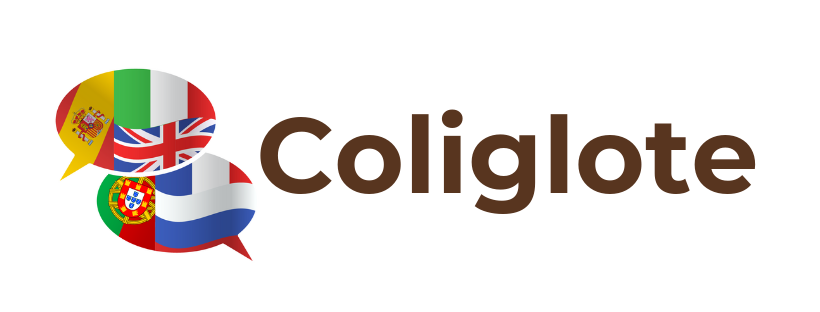A polyglot is a person who speaks several languages. The word polyglot comes from the Greek roots polus, meaning “many” and glôtta, meaning “the language”.
Polyglot people who speak two languages are more specifically called bilingual and those who speak three, trilingual and so on … hyperpolyglot people are those who speak at least six languages fluently.
A short video overview:
Two hyperpolyglot in discussion in more than 20 languages!
His secret to becoming hyperpolyglot: interview with Luca Lampariello
The young Tunisian journalist, writer and blogger Ala Oueslati interviewed the Italian hyperpolyglot Luca Lampariello.

© Luca Lampariello
In recent years, educators and learners have come to focus more and more on the importance of quality education and hands-on participation. The underlying rationale seems to be that self-directed learning promotes the natural development of self-confidence, initiative, perseverance and life satisfaction and enhances the cognitive processes of learners, such as those involved in attention, understanding and memory.
In the case of learning languages, many instances have proved the motivational component of self-directed learning, stating that this kind of learning is effective because it makes us more willing to learn, because we are better able to do so when we can control the flow of our experience, when we frame our learning process or when we can tailor the learning to our own personal needs and requirements.
In this interview, language coach and expert Luca Lampariello, a remarkable polyglot from Rome who speaks eleven languages, tells us how he succeeded in teaching himself languages and in using them to live a better life.
Luca, why don’t you introduce yourself shortly and briefly talk about your academic and professional backgrounds?
I am currently living in Rome and working as a language coach. I’m also as a keynote speaker at conferences and workshops about language learning. I hold a degree in Electronic Engineering. In the beginning I was heading towards a scientific career but then I decided that what I really wanted to do was work as a language coach. I felt like I needed to listen to my inner voice, which said: “Luca what you really like doing is using languages and communicate with people”
I decided to make languages an integral part of my life. I started by creating a Youtube Channel to help people learn languages.
Could you tell us how you first realized you had this passion for learning languages?
My grandmother planted the seed when I was 10, but my aunt was the one who made me decide at the age of 12 that it was the moment to start learning languages for real by myself. Then at 15 for the first time I decided to learn languages completely by myself and that’s how I found out about my method to learn languages. I am not obsessed with languages, I believe I explore the world through them. I just have a love for knowledge.
Tell us about the languages you speak fluently and the languages you have learned?
In order to reply to this question, we should first decide on a meaning for “fluency”. I really like a definition of fluency I found somewhere: “fluency, isn’t the ability to know every word and grammatical pattern in a language: it is the ability to communicate your thoughts without stopping every time you run into a problem”. Based on that definition I would say that I speak 11 languages fluently and they are Italian, English, French, German, Spanish, Dutch, Swedish, Portuguese, Mandarin Chinese, Russian and Polish. I am still practicing my Japanese.
How does learning languages contribute to making your life better, and what opportunities has this given you throughout your professional and personal life?
The more languages I learn, the more I realize that all humans have the same feelings but express them in different ways, and languages reflect those differences. Languages help you better understand the world you live in, even if you don’t use them for work. In my case, languages helped me find a job, and when you do something that you love it never feels like a job. Also, when you travel, things are much easier not only when you visit a given country but also if you have to move there. It is also much easier to make friends and connect with others around the world.
Can you give us a short summary about the phases you usually go through when learning a language?
What I do is make sure I know why I’m learning the language. Once I know why exactly I’m learning the language, I establish a date I will start learning. Now, how do I do that?
First I make sure that I have the tools. These tools are usually language learning material, such as Teach Yourself or Assimil, which I use. I use a translation technique, meaning that I choose a text in the language I’m learning and I translate this text back and forth at given interval times so that I’m not just listening and reading but also retranslating actively the language to understand its structure.
What’s most important is adhering to the principle of learning everyday. Once I understand the basics of a language I start to have conversations with people on Skype and I record them. Then I start taking it to the next level by watching documentaries, and by creating a micro and macro environment for language learning, meaning, meeting people or living with people who speak the language.
Basically I have three phases:
1- I deliberately spend some time (3 months to 1 year) figuring out the overall structure of the language. I apply my technique to language learning material for beginners.
2- Once I get a grasp of the language, I make sure I start practicing it with native speakers and I get exposed to interesting content I find on the internet.
3- I start using the language as much as I can in every possible situation, as much as I do with my native language. This is how language learners become really good at any foreign language: by living it to the fullest.
What do you think is the advantage of teaching yourself a language, and finding your own method?
The advantage is huge because first, you do things that interest you. Imagine you had to learn German and talk about something that is not interesting to you at all. While learning by yourself you can choose to talk about exactly what you like and that will make the learning process more efficient for you.
A big problem is that many people just don’t believe they can do it. One of the first things I think you should do if you want to learn a language is learn how to learn. This isn’t something a lot of schools and universities around the world do.
Can you tell us about the importance of relying on one’s self such as self-teaching?
The world is becoming so globalized that speaking only English is not sufficient anymore. There is value in speaking another language. Speaking languages opens up an outside and inner world. I don’t think learning 11 languages is crazy. I think it’s crazy not to do it. Many people around the world can speak 5 languages because they lived in multilingual environments. I think in 30 or 40 years, speaking 3 or 4 languages will be the norm for everybody.
The fact that I speak 11 languages doesn’t mean I’m constantly hitting the books. I found a way to keep learning languages while having a great life connecting with people. To succeed you have to create an environment to thrive. My answer to people who ask “why learn 11 languages?” is “why not?”
What would be your message to the readers of Voices of Youth and more specifically to the people who don’t think that self-learning can be a successful way to learn a language and to monolinguals around the world?
First, speaking multiple languages is amazing, and it’s never a waste of time. You never know what’s going to happen in your life because of a language you’ve learned. Second, you have to understand and believe that learning a language is easier than most people think. The process is made difficult because of the popular use of methods that just don’t work. I’ve prepared a free series where I give away over 3 hours of advice of my best tips to help people get started with language learning. Visit my blog and sign up for the free series www.thepolyglotdream.com
nterview by Ala Oueslati. The original version of this interview (in English) has been published on the magazine’s website La voix des Jeunes.
The Life of a Polyglot
That’s it! I hope this article has convinced you that becoming a polyglot is within everyone’s reach, regardless of your origin, history or age if you are motivated. All you have to do is have enough self-confidence, get out there and get involved.
So, motivated? Getting started?
Written by Ingrid, Coliglote
Sources :
Le site officiel de Luca Lampariello
https://youth-time.eu/interview-with-italian-polyglot-luca-lampariello/

